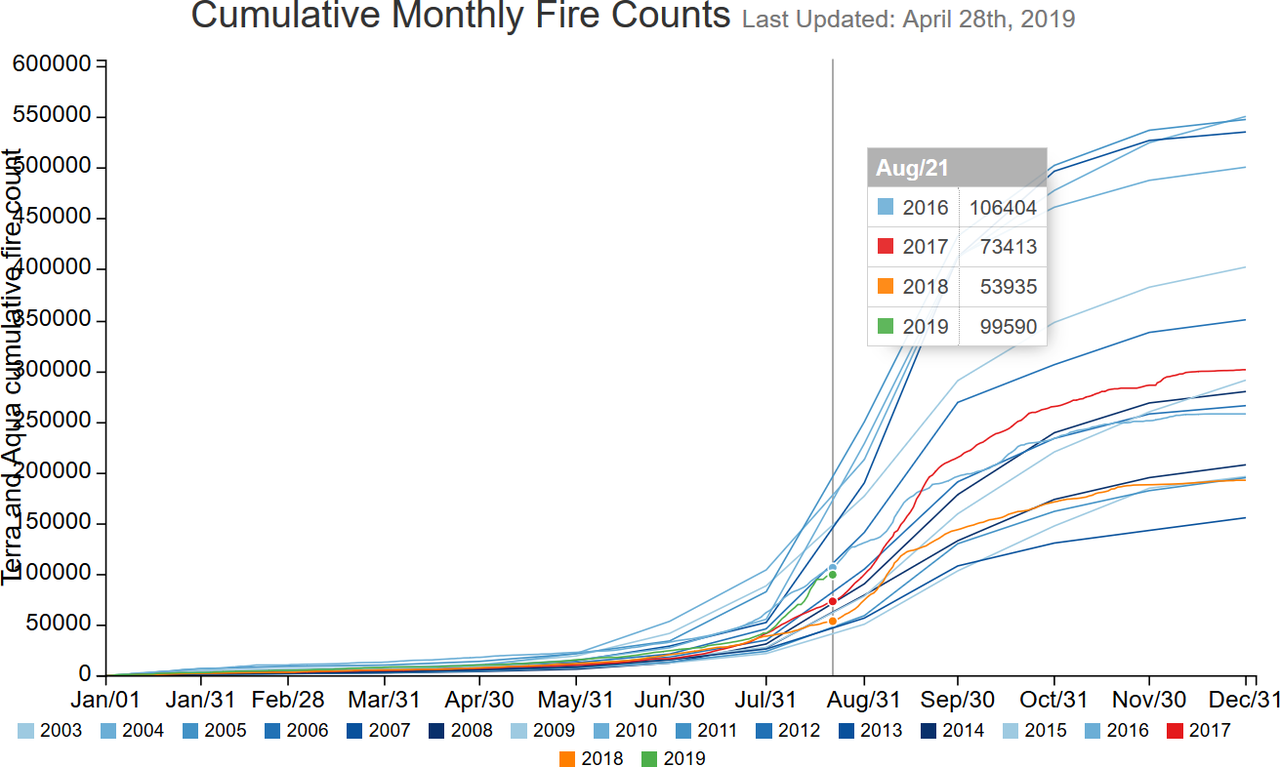"China’s will to defend the core interests of the country and the fundamental interests of the people is indestructible, and will not fear any challenge. History will prove that the side
on the path of fairness and justice
will have the last laugh."
on the path of fairness and justice
will have the last laugh."
 By Tyler Durden: After Friday's blitz of reciprocal trade war escalations, which saw a furious Trump slam the two "enemies of the state", Fed Chair Powell and China president Xi, following China's widely expected tariff hike retaliation and Powell's uneventful Jackson Hole speech, and further raise tariffs on virtually all Chinese imports after stocks suffered another major selloff, we said that the next steps were clear.
By Tyler Durden: After Friday's blitz of reciprocal trade war escalations, which saw a furious Trump slam the two "enemies of the state", Fed Chair Powell and China president Xi, following China's widely expected tariff hike retaliation and Powell's uneventful Jackson Hole speech, and further raise tariffs on virtually all Chinese imports after stocks suffered another major selloff, we said that the next steps were clear. Sure enough, in response China said it would continue fighting the trade war with the US "until the end" as tit-for-tat escalation is now virtually assured with no end in sight.
On Saturday, China's commerce ministry issued a statement calling on Washington not to "misjudge the situation and underestimate the determination of Chinese people" after US President Donald Trump announced new tariffs on Chinese imports.
"The US should immediately stop its wrong action, or it will have to bear all consequences,” the statement said.
At the same time, a sharply worded commentary in the official party mouthpiece, People’s Daily, said China had the strength to continue the dispute and accused Washington of sacrificing the interests of its own people. Published under the pseudonym “Wuyuehe”, the piece described the latest tariff measures by the US as “barbaric”. The op-ed said China’s own tariffs on $75 billion worth of American products, announced late on Friday, were a response to America’s unilateral escalation of the trade conflict, and vowed that China was determined to fight back “until the end”.
“China’s will to defend the core interests of the country and the fundamental interests of the people is indestructible, and will not fear any challenge,” the author wrote, promising that "history will prove that the side on the path of fairness and justice will have the last laugh."
Predictably, China also took offense by Trump's characterization of Chinese President Xi Jinping as an "enemy" and his "order" to American companies "to immediately start looking for an alternative to China."
Already a sad, toothless sideshow which will culminate without an official communique due to disagreements among the participants, this weekend's G7 summit in Biarritz will be upstaged by the intensifying trade war between the two nations, with analysts warning Trump may pressure other Western leaders to toughen their stance against Beijing. Meanwhile, French President Macron is expected to simply focus on Brazil’s handling of the Amazon rainforest fires - fires which take place every year to a lesser or greater extent - and climate change during the gathering from Saturday to Monday.
(Lack of) diplomacy aside, the hit to China will be profound: according to China’s Customs Tariff Commission, a total of 5,078 US products would be subject to additional tariffs of 10% or 5%, as the duties are implemented in two batches – the first from September 1 and the second from December 15.
As the SCMP notes, an earlier commentary from Taoran Notes, a social media account affiliated with official newspaper Economic Daily, said China’s countermeasures were akin to a “precision instrument”, targeting industries such as US soybeans, crude oil and cars.
Meamwhile, Brian Dodge, chief operating officer of the Retail Industry Leaders Association, said Trump’s continued escalation of tariffs had already rattled the US market.
“Mr President, we implore you to end this trade war before the damage is irreversible,” he said. “If uncertainty spreads from Wall Street to Main Street, the record expansion we’re enjoying will undoubtedly come to an end and it will be the American consumer, not China, who will suffer.”
However, as Bill Reinsch, senior adviser at the Washington-based think tank Centre for Strategic and International Studies, correctly assesed, a de-escalation in the trade hostilities was unlikely because neither side saw any political upside to offering concessions. Trump "wants to keep bullying China and China wants to keep telling the rest of the world that they are the good guy here," Reinsch said.
At the same time, picking up on what we said in "Mr. President, This Is How To Get The Fed To Launch Quantitative Easing", Eurasia Group's Ian Bremmer said that “Trump really doesn’t want the economy to tank... but if he’s headed for confrontation with China anyway (and he is), he’d rather take the hit way before elections. Implies escalation from US soon."
More importantly, it also means that the Fed will be under increased pressure to not only cut rates, but launch "some quantitative easing" as Trump demanded on August 19. As a reminder, at the end of the day, Trump sees the Fed's actions - or lack thereof - as far more important to the US economy than the outcome of the trade war, which explains hiw question "who is our bigger enemy, Jay Powell or Chairman Xi?"
To answer, and provoke Powell into conceding, Trump is now willing to take the US, and global, economy to the edge of recession. It's a big gamble, although Trump's position got an unexpected supporter late on Friday, when none other than BOE head Mark Carney effectively endorsed Trump's destabilizing policies by saying that the time of the US Dollar as the world's reserve currency is now over.
Source

No comments:
Post a Comment